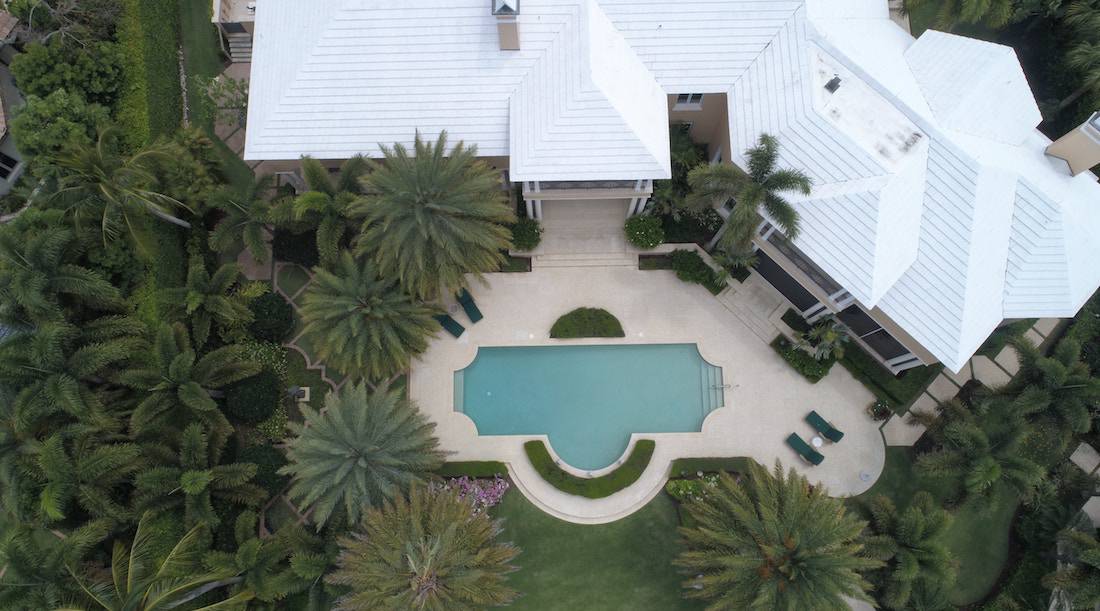Florida Renter Rights Overview
We continue our series of articles on tenants right in different states and today we want to tell our Florida tenants what are the state laws that they should look up to.
There is a strong belief in our editorial that educating yourself is crucial for everyone who wants to feel safe and secure during the rental process. Knowing your rights may benefit you in any controversial situation with your landlord, so we want to put a spotlight on the most important rights and obligations you have according to Florida laws.
Read our guide and discover thousands of apartments for rent in Florida on Rentberry.
Rental Application
Application Price Limit: Not indicated
Application Consideration Deadline: 7 days
Application fee: Not indicated
Applying to a property requires you to fill out a rental application and send it to the landlord you want to lease from. There is no indication on whether the application fee should be charged, yet the maximum price limit is not indicated as well, so if your agent decides to charge you the application fee it may vary. Usually, it’s around $25-$35 per application.
It is reasonable to wait for the feedback on your application and according to the Florida laws, you can consider your application rejected if you don’t receive any response within 7 days.
Security Deposit
Pet Deposit Maximum: Not indicated
Security Deposit Maximum: Not indicated
Return Deposit Deadline: 30 days (if no damage claim needed – 15 days)
Itemized List of Charges & Damages: Required
Landlord Move-Out Inspection: Not Required
Legal Reasons to Keep Security Deposit: Indicated
There are no fixed amounts that define the Pet and Security deposits maximum sums in Florida, yet your landlord should provide you with the following info within 30 days of receiving the security deposit:
- Whether the money is held in the interest bank account
- The rate and time of future interest payments
- The name of the account depository
- The interest payments should be performed annually or at the lease termination.
Once you terminate your tenancy, your landlord has 30 days to file a damage claim and include the list of deductibles.
Security and Comfort
Required Security Devices: Not indicated
Smoke Alarms: Required
Rekey Requirements: Not indicated
Maximum Deductible Cost of Repairs: Not indicated
The landlord of your unit should make provisions during your tenancy, such as:
- Extermination of rats, mice, roaches, ants
- Clean and safe condition of common areas
- Garbage removal
- Functioning heat during winter, hot and running water
By default (unless you agreed otherwise), your landlord is obligated to install the smoke detection devices.
The devices should be listed by the federally recognized laboratory and tested out by the nationally accepted standards.
Rental Payments
Maximum Rent: Not indicated
Late Fees: $20 or 20% of your monthly rent (whatever is greater)
Rent Increase: 15 days notice
Late Payment Limit: 3 days (after that, a tenant will have to move out)
The maximum rent payment is not indicated in the Florida Statutes.
Your landlord has a right no increase the rent and the state law doesn’t define the amount of notice he should give when he decides to change the terms of your month-to-month lease agreement.
Typically, the amount of notice is 15 days, but keep in mind that if you have a long-term lease, your landlord may not increase the lease until the end of your current agreement.
Lease Terminations
Notice to Terminate Lease: Not less than 60 days (unless your lease has another option)
Eviction Notice for Not Paying Rent: 3 days
We decided to indicate the notice period for the year-to-year lease by default, but there are also other lease terms that we should mention and review:
- When the tenancy is from quarter to quarter, by giving not less than 30 days’ notice prior to the end of any quarterly period
- When the tenancy is from month to month, by giving not less than 15 days’ notice prior to the end of any monthly period
- When the tenancy is from week to week, by giving not less than 7 days’ notice prior to the end of any weekly period
Under the Florida laws, you and your landlord can define the lease-breaking fee. This fee cannot be more than twice the price of your monthly rent. This fee will be collected by the landlord in case you don’t give him a 60 days’ notice.
Within these 2 months, your landlord will try to find a new tenant and he will collect that money to cover up his loss if he doesn’t find a new tenant.
Note: Your landlord can offer you the option of the early termination clause, but you’re not obligated to agree. Also, the landlord cannot refuse to rent out a place to you based on your refusal to use this option.
There are three situations when you can terminate your lease without any fee:
- If you are called to the military service
- If you rental is unsafe or violates the Florida Health and Safety codes
- If your landlord harasses you or invades your privacy
Roommates Rights
Subletting: Not indicated (but usually forbidden in the lease agreement)
Responsibility to cover roommate’s part of rent: Yes
Florida laws do not specifically forbid the subletting, so basically it’s possible to sublet your apartment, but don’t rush to celebrate. Most of the lease agreements usually include the option of subletting and it’s almost always mentioned that it’s forbidden by the landlord.
As for the rental payments, you should note that when you sign a lease with a co-tenant, both of you are individually responsible for paying out the whole rent to the landlord. So basically, when one co-tenant leaves, the other one will be responsible for the whole rent.
If you don’t pay the rent in full when you co-tenant leaves, Florida landlords have legal rights to end your tenancy. You’ll receive a notice to pay the full rent in the next 3 days or leave if you are not able to do that.
Rights Related to Landlord Disclosures
It’s always good to know your tenant rights. They’re usually regulated by the state laws, but some states like Florida make a step forward and obligate any landlord to disclose particular state laws that you should be informed of, give out the specific information about the rental, tell you about the individual landlord policies and, for example, notify you about the lead-based paint hazard in case there is any in the house.
There are a few more things that a landlord should inform you of, such as the identities of everyone who can act on his behalf and the information regarding your security deposit (like where it’s held and whether the interest is generated).
Florida laws also obligate your landlord to disclose the following information:
- If there is any nonrefundable fee
- Landlord’s smoking policy
- Planned rental conversions or intentions to demolish the unit
- etc.
See a full list of the landlord disclosures in Florida
Official Documents on Tenant Rights in Florida
Landlord and Tenant General Provisions
Official Florida Statutes
Disclaimer: Although we have relied on Official State Statutes and other credible sources to find and analyze information for this post, you’re advised to use it as a starting point only, and do not consider this article a substitute for legal advice. Some situations are unique, and it is always better to consult with a qualified lawyer or appropriate government agencies.






I have rented a South Florida townhouse for 13 years. Has been month to month for years now. They want to sell. What are my rights
I own my home in a 55 and older park. But I rent the lot.Manager is stating that I can not have curtains up on my screen room which is attached to my home. And that I can only have patio furniture in there…NOTHING ELSE..he is harassing all the residents. Is this legal? We have no lease..
Is it mandatory for a Florida Landlord to include a lease termination clause and offer/negotiate a break lease fee at lease signing?